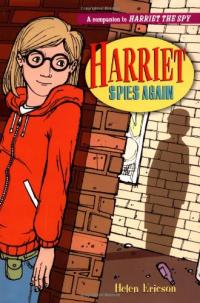
Harriet Spies Again

Harry knows that a terrible two-headed monster lives in his basement. So when his mother doesn’t return from a trip downstairs, Harry swallows his trepidations and goes down to rescue her. But when he confronts the monster face-to-face, it literally diminishes in size and eventually leaves Harry’s house forever. Humorous illustrations use black line and limited color to depict Harry overcoming a once fierce (but softly edged) monster.
Harry and the Terrible Whatzit

Parades are part of the fun of any Fourth of July celebration. Young readers are invited to join the fun of this down-home parade, told with a jaunty rhythm and rhyme. Animated illustrations literally parade across the pages to a sparkling conclusion.
Hats Off for the Fourth of July

There are no other kids on Henry’s block so his parents agree that a dog to play with will ease Henry’s loneliness. This is the start of an unforgettable friendship between a boy and a big pooch named Mudge.
Henry and Mudge: The First Book

Hondo and Fabian

When Mimi the Swan sees ballet practice from the window of the Paris Opera House, she becomes obsessed with ballet. Though she tries to attend a performance, she is not allowed into the opera house. She finally follows a tardy dancer into the theater and gets her big break: Mimi becomes the star in none other than “Swan Lake!” The wry humor is conveyed in both text and witty illustrations in this appealing, comical story.
Honk! The Story of a Prima Swanerina

Hooray, A Piñata!

When an American sailor meets a Japanese woman, they both try in secret to learn the other’s way of eating. Their courtship and growing love culminates in marriage. This realistic family story explores cultural similarities and differences and is told with humor and honesty by the couple’s daughter.
How My Parents Learned to Eat
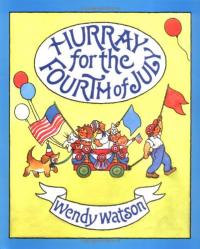
Celebrate America’s birthday with a family in a small town. Animated and often funny illustrations and verse present this special day’s activities starting with a read, white, and blue breakfast and culminating with fireworks.
Hurray for the Fourth of July
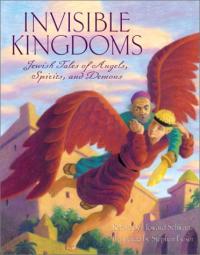
Invisible Kingdoms: Jewish Tales of Angels, Spirits and Demons
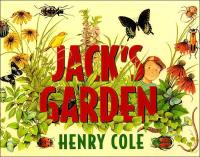
In this cumulative tale, Jack plants, tends and harvests his garden. Not only will readers follow Jack’s activities, they’ll learn about gardens and gardening in this informative and animated book through text and highly detailed and well-labeled illustrations. (The author’s background as a science teacher is pleasantly evident.)
Jack’s Garden
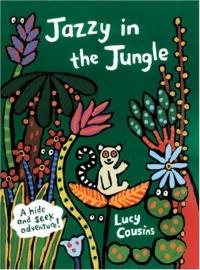
Jazzy in the Jungle

Jethro Byrd: Fairy Child

Jewish Holidays All Year Round: A Family Treasury
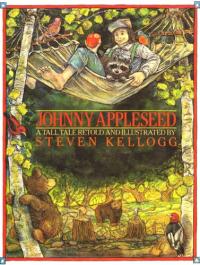
Johnny Appleseed

Journey to the River Sea

“This old man / He played one”: Applying paper-engineering wizardry to the traditional counting rhyme, the Caldecott Medal winner creates a ravishing variation on the pull-the-tab title.
Knick-Knack Paddywack

Her parents are receptive to Kate’s suggestion, “Let’s get a pup!” and head to the shelter. They bring home a puppy, but ultimately return to add Rosey, an older dog, to their family. Line and wash illustrations depict a very contemporary and loving family with wit and compassion.
Let’s Get a Pup! Said Kate
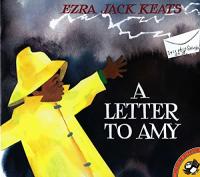
Peter finds a special way to invite Amy, the only girl and a singular friend, to his birthday party. But the wind catches his letter just as he puts it in the mailbox. Keats’ well-liked character (first introduced in A Snowy Day) is back for another everyday drama.
A Letter to Amy

It was cold and snowy when Grandma and Grandpa left their home in Maine to live in California. Lily, the young narrator, fills each month with activities that range from collecting sap to planting a garden. After a whole year has passed, Grandma and Grandpa return in December to share Christmas with Lily and her family in New England. Illustrated sidebars extend the text and provide additional information about Lily’s garden over the months.
Lily’s Garden

In simple text and crisp, clear color photographs, grandparents of all sizes, shapes, ages, and abilities are shown. This attractive book introduces the idea that each of us is different but still have much in common.
Lots of Grandparents

A girl visits both sets of grandparents on weekends. On Saturdays, she speaks English with Grandpa and Grandma, while on Sundays, los domingos, she speaks Spanish with Abeulito and Abeulita. The format provides a glimpse at the subtle differences between cultures and highlights their similarities, one of which is each set of grandparents’ love for their granddaughter. Spanish words are interspersed in the fluid text.
I Love Saturdays y domingos

Lyddie is a resourceful, self-sufficient girl who leaves Vermont to work in a Lowell, Massachusetts factory. Historical detail about life in 19th century New England combined with a portrait of this fiercely independent girl create an unforgettable novel.
Lyddie

